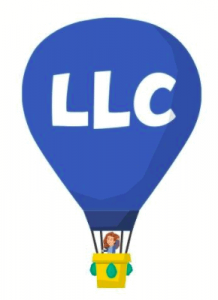How Much Does It Cost to Start an LLC?
The costs of starting your LLC—and the specific things you pay for—vary from state to state. At a minimum, however, you’ll usually need to pay fees for filing state formation paperwork and obtaining licenses and permits. On top of all that, you may need to pay for hiring a registered agent, filing annual reports, applying for business licenses, and more. You might even have to pay to publish notice of your business’s formation in some states.
As these costs stack up, it can be easy to lose track of them. Our guide will help you prepare to handle your LLC’s expenses and keep your business in good standing. Read on to learn more.
In this article, we'll cover:
Formation Fees
Registered Agent Fees
Licenses and Permits
Business Insurance
Formation Fees
When forming your LLC, you’ll need to file formation paperwork with your state (or jurisdiction, such as the District of Columbia, Puerto Rico, or Guam). In almost every location, you’ll need to file a form called Articles of Organization, which usually carries a fee.
In some states, you will also have to pay fees to file an Initial Report, either at formation or shortly afterwards. Whether your state requires an Initial Report or not, almost every one requires an Annual or Biennial Report and accompanying fee, due within your LLC’s first year of existence.
Other common state options for your LLC that can add to your total expense include reserving an LLC name, an alternative DBA name, a Certificate of Good Standing, and fees for certified copies of documents and expedited processing.
Articles of Organization
The primary document you need to file with your Secretary of State’s office (or equivalent state division) is the one that officially creates your LLC as a legal entity. In most jurisdictions, this paperwork is called Articles of Organization, but it can also be called a Certificate of Formation, Certificate of Organization, or Public Records Filing.
The price of filing LLC formation documents can be wildly different, depending on the state where you file. On the low end, a state like Colorado only charges $50 for LLC Articles of Organization, but on the opposite extreme, Massachusetts charges $500 to file an LLC Certificate of Organization. It can even go higher, in certain cases—Tennessee has a $300 filing fee to create an LLC with six or fewer members, but after six, it’s $50 per member. So a Tennessee LLC with at least 10 members will pay as much or more than one in Massachusetts!
Reports
Most states require businesses to file reports on a regular basis—usually annually, but sometimes biennially or even less frequently. With most states requiring annual reports with set fees, or percentage-based franchise taxes, its a good idea to factor paying for the report in with your LLC’s budget.
Much like Articles of Organization, the cost of reports can range between inexpensive ($9 for a New York Biennial Report) and quite steep ($500 annually for Massachusetts). California currently waives its annual franchise tax for the first year of a new LLC’s existence—but after that, watch out for an $800 fee, regardless of the size of your LLC.
A small number of states require LLCs to file Initial Reports with fees as well:
- Alabama: $100 minimum tax due within 90 days of formation
- California: $20 fee for Initial Statement of Information due 90 days after formation
- Nevada: $150 at time of formation, part of a packet with Articles of Organization
- Washington: $10 fee due within 120 days of formation
Other states may require initial reports from LLCs, but do not charge a fee.
Publishing
In three states, LLCs must meet a publication requirement. In Arizona (except for Maricopa and Pima counties), Nebraska and New York, you must publish notice of your LLC’s formation in one or more newspapers. You’ll have to pay the newspaper for running the notice, which (depending on the state) could cost as little as $40 or as much as $1,000.
Nebraska also requires you to file Proof of Publication with the Secretary of State for $25. New York’s Division of Corporations charges $50 for an Affidavit of Publication. Arizona does not require LLC owners to submit an Affidavit of Publication—that is the newspaper’s responsibility, but you must keep the copy of the Affidavit you receive as proof of compliance.
Optional Fees
You may need to purchase additional services for your LLC from your Secretary of State’s office, such as registering an alternate name for your company, getting certified documents, or proof of good standing.
- DBA Name: A DBA (“Doing Business As,” sometimes “trade name” or “fictitious name”) allows you to operate your company under a different name than its official one. LLCs have more freedom over name choice than sole proprietors or partnerships, so a DBA isn’t always necessary, but one can be helpful when expanding into a new brand or informally subdividing your business. DBA registration generally costs between $10 and $100. Note: Seven states also have a publication requirement when an LLC gets a DBA—California, Florida, Georgia, Illinois, Nebraska and Pennsylvania.
- Trademark: A DBA does not give you exclusive right to the name, so if you want to be able to defend your claim to that name (or to your LLC’s logo or other branding) legally, you’ll need to file a trademark application. Federal trademark applications cost $250-$350; state trademarks are cheaper with a range between $50 and $75, but are only valid in the state they were filed in.
- Certificate of Good Standing: This document verifies your LLC’s legal status in its state. You may need a Certificate of Good Standing to open a bank account or loans for your LLC, for investors, or to do business outside your LLC’s home state. Certificates of Good Standing cost between $5-$50 on average, but a small number of states charge more for long-form certificates, such as such as $175 for a Certificate of Good Standing in Delaware.
- Certified Copies: Most states allow you to order officially certified copies of your original business documents from the original issuing authority. These are useful when you would otherwise need to present original documents for apostille or foreign qualification. Some jurisdictions provide certified copies for free online, but in most states you’ll need to pay somewhere between $3 and $55 for a hard copy, depending on the state. Most states also charge a fee per page of a document in a certified copy—anywhere from 15 cents to $3.50 a page.
Registered Agent Fees
Every state requires an LLC to have a registered agent who can accept service of process on the company’s behalf. You need a registered agent with a physical address in every state where the LLC does business, and who is present and available to accept mail during normal business hours.
You can serve as your own agent for free, or have a partner, family member or employee do it—but whoever you choose will not be able to go off-site until the end of business hours every weekday. Because of that restriction, many LLC owners choose to hire a registered agent service instead.
The price of hiring a registered agent depends on the company providing the service, and may change with little notice. However, Northwest offers registered agent service for a fixed $125 per year, and we never raise that rate.
Licenses and Permits
It’s almost certain that you will need at least one license or permit to operate your business, and likely more than one. State business licenses or seller’s permits, professional licensing for specific occupations, and city and county licenses may all be required for your LLC.
State Business Licenses
Only a small number of states (as well as the District of Columbia) make all businesses in their jurisdiction get general business licenses:
- Alaska: Currently waives business license fees, ordinarily $50, renewed annually.
- Delaware: Variable fees, but usually $75 for a first location, renewed annually or every 3 years.
- Hawaii: A one-time $20 fee for a General Excise Tax License.
- Nevada: $200 fee, renewed annually.
- Washington: $90 to open a first location, $10 to renew.
- West Virginia: A one-time $30 fee for a Business Registration Certificate.
- District of Columbia: A DC Basic Business License has variable fees based on business categories, renewed every 2 or 4 years.
Most other states have seller’s permits (also referred to as sales and use tax permits or sales tax licenses), used as authorization for any businesses selling tangible property to collect state sales tax. Some states do not charge a fee to register for a general business license or seller’s permit—but that is not a universal rule, so check with your state’s relevant tax or licensing division for more information.
States also regulate certain products and activities, which can include things like hazardous materials, liquor, cannabis and heavy machinery. Businesses involved with regulated activities will likely need to pay some kind of fee when obtaining a license.
Local Business Licenses
You may also need to get a business license for your LLC’s county or city. This can be a broad general license for any business inside a city, a simple permit to operate a home-based company, or just a specialized license for specific types of business activities (amusement centers, theaters, vending machine companies and taxi services are often licensed on a local level).
While city and county licenses tend to have higher fees in larger population centers, you’ll need to check with your city or county to determine the actual cost of a business license, if one is required at all in your area.
Professional Licenses
Highly-skilled services like architects, doctors, engineers, plumbers and veterinarians (among others) need licenses to prove their practitioners are qualified. Professional licenses are issued by state licensing boards (such as a bar association or medical board) or relevant state government departments. The cost of professional licensing varies by the industry or area of specialty, and many occupations require separate fees for both taking a licensing exam and getting the actual license.
Business Insurance
While an LLC has liability protection for its members, that doesn’t mean you can necessarily go without business insurance. At a minimum, LLCs with employees will likely need workers’ compensation insurance. Liability coverage and other insurance is also useful for preventing paying excessive losses out of your LLC’s accounts and business assets.
Workers’ Compensation Insurance
Workers’ compensation insurance is required in most states—though the number of employees a company can have before it is mandatory, whether part-time or temporary employees must be covered, and exceptions for LLC members or family-operated businesses are all factors that change from state to state. You may also have different options for purchasing private insurance versus coverage from a state worker’s compensation fund in one state versus another.
LLCs can expect to pay somewhere between $0.50 and $1.50 per $100 of payroll for workers’ compensation insurance, depending on the location and nature of your business. Higher risk jobs generally have higher worker’s compensation costs.
Liability Insurance
Liability insurance may or may not be mandatory for a business in your state, but it’s often a wise purchase regardless. General liability insurance can cover losses from physical injury at your LLC’s property, libel, lawsuits and settlement costs. An LLC that manufactures goods may also want product liability insurance in case of a defective product causing harm, and service-related businesses like medical offices and attorneys may want professional liability insurance in case of malpractice suits.
Liability insurance premiums are determined by your LLC’s location, size of facilities, amount of operating costs and history of filing liability claims in the past, as well as the actual coverage, deductibles and other policy details you choose for your company. Because so many factors impact the price of liability coverage, it is difficult to assess a range of rates, but a recent study found the insurance costs an average of around $30 per month for businesses across the country.
Other Insurance
Commercial property insurance is useful for protecting LLC property from natural disasters and vandalism, and may be a good choice in high-risk areas—though rates will increase accordingly! Meanwhile, home-based LLCs can protect their business equipment by electing for additional coverage from homeowner’s insurance.






